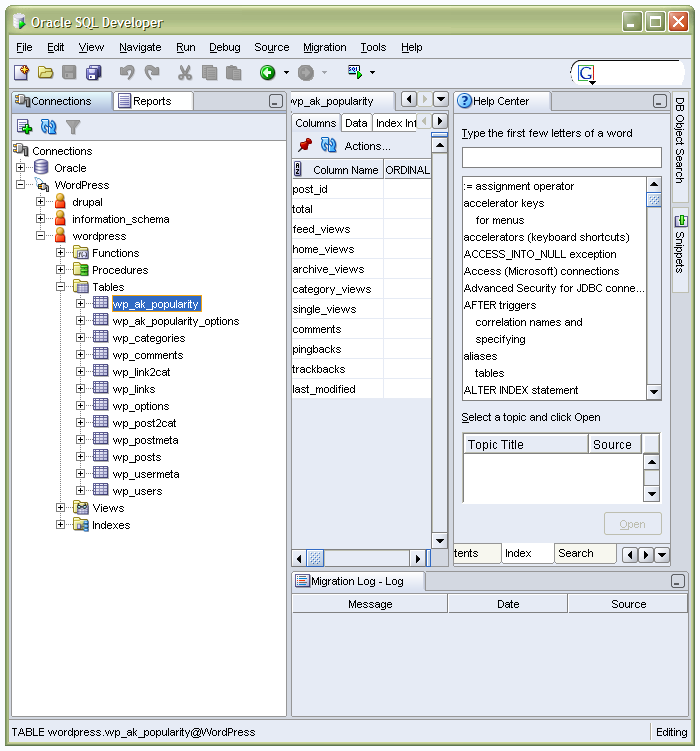My work in the last week has put me on something of a learning about Oracle. This is down to my needing to add file metadata to a database as part of an application that I am developing. Since the application is written in SAS, I am using SAS/Access for Oracle to update the database using SQL pass-through statements written in Oracle SQL. I am used to SAS SQL and there is commonality between it and Oracle’s implementation, which is a big help. Nevertheless, there, of course, are things specific to the Oracle world about which I have needed to learn. My experiences have introduced me to concepts like triggers, sequences, constraints, primary keys, foreign keys and the like. In addition, I have also seen the results of database normalisation at first hand.
Using Oracle’s SQL Developer has been a great help in my endeavours, thanks to its online help and the way that you can view database objects in an easy-to-use manner. It also runs SQL scripts, giving you a feel for how Oracle works, and anyone can download it for free upon registration on the Oracle website. Additionally, I have installed the Oracle 10g database Express edition at home, which serves as a valuable personal learning resource. That is another free download from Oracle’s website.
My Safari bookshelf has been another invaluable resource, providing access to O’ Reilly’s Oracle books. Of these, Mastering Oracle SQL has proved particularly useful, and I made a journey to Manchester after work this evening (Waterstones on Deansgate is open until 21:00 on weekdays) to see if I could acquire a copy. While that quest was to prove fruitless, I now have got the doorstop that is Oracle Database 10g: The Complete Reference from The Oracle Press, an imprint of Osborne and McGraw Hill. Since I needed a broader grounding in all things Oracle, this should help. Usefully, it also covers SQL, but the aforementioned O’ Reilly volume could return to the wish list if that provision is insufficient.
